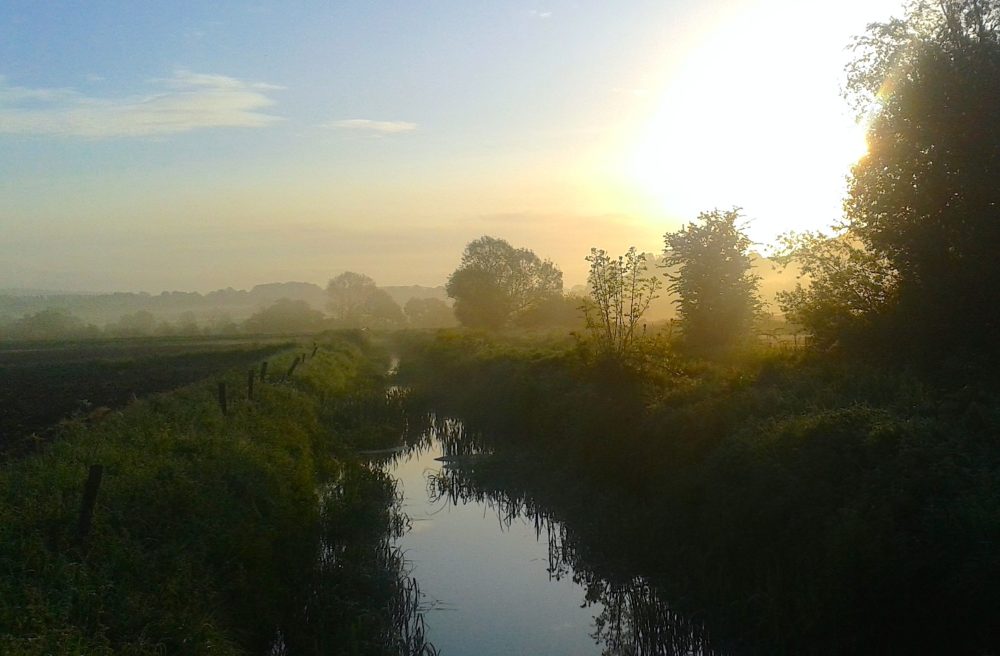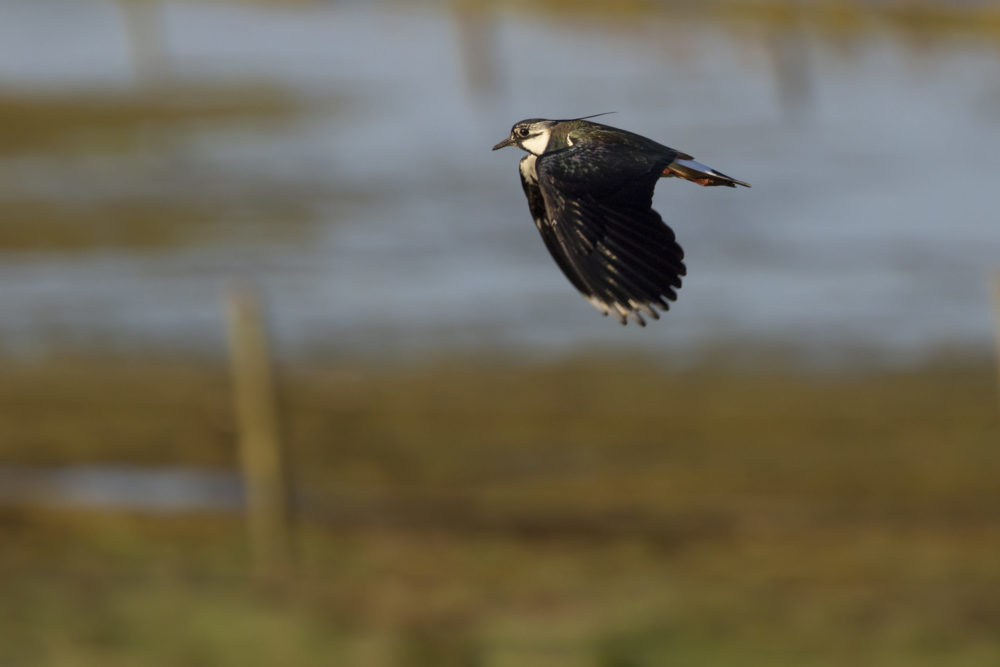Why solar plants can sometimes damage the environment

Martin Shipton
A pioneering environmentalist has warned that solar energy plants such as that proposed by the convicted polluter who donated £200k to Vaughan Gething’s leadership campaign can be bad for the environment.
Gwent Wildlife Trust planning manager Mike Webb is spearheading the Trust’s campaign to stop further developments on the Gwent Levels, a sensitive wetland landscape to the south east of Newport.
Discussing the issue in a podcast with BBC Springwatch presenter Gillian Burke, Mr Webb explained how an existing solar plant at Llanwern had polluted the reens (water channels) on the northern part of the Gwent Levels and destroyed a lapwing breeding colony.
There are more proposed solar plants in locations not far away – another close to the current Llanwern site; one at Craig-y-Perthi near Pontypridd; one known as Magor Net Zero; Rush Wall solar park, also in Gwent, and one proposed by Dauson Environmental Group at Wentloog, near Cardiff, which donated £200k to Mr Gething’s Welsh Labour leadership campaign and whose main director David Neal has received two suspended prison sentences for polluting the Gwent Levels.
Miner
Mr Webb told Ms Burke that his grandfather was a miner in the south Wales coalfield, and that he grew up in a home atmosphere where politics was discussed around the table. He was in the first generation of environmentalists for whom politics and the environment were intertwined. Before that, he said, the focus on the environment had been about wildlife and species, in a policy vacuum.
Mr Webb said: “The Gwent Levels SSSI [Site of Special Scientific Interest] is a marvellously rich, liminal flat landscape in the south east corner of Wales. When we think of Wales, we tend to think of places like the majestic mountains of Snowdonia, or the rugged coastline of Pembrokeshire, so Wales is mountain and sea isn’t it? No!
“Our campaign to bring about a moratorium on major built development on the Gwent Levels has been born of our experience in fighting the tidal wave of individual proposed development projects on the Gwent Levels SSSI which, in an Alice in Wonderland situation, is being actively targeted by developers, in a type of Klondike scenario.
“We realised that we are not going to win against all of these proposals, and we decided that we needed to get some type of red line in the sand, and call a definitive halt to development on the SSSI. For this reason, we are calling for a moratorium on major development on the SSSI.
“We got together with the communities of the Levels as well as the other NGOs [non-governmental organisations], and we launched a petition to the Senedd, calling for a moratorium. That petition gained 5500 signatures, and at one point was the fastest growing petition laid before the Senedd. No Senedd constituency throughout Wales had no signatories, making this a truly Wales-wide issue.”
Sterile
Ms Burke told the podcast that, in her train journeys across Britain, she found it difficult to avoid observing that solar farms appear to be sterile monocultures, with little or no wildlife.
Mr Webb said he “found it sad that we find ourselves campaigning against solar farms”, because it seemed to go against all the deeply-held beliefs of environmentalists. It shouldn’t have to be like that. He added: “We get that we are in a climate emergency, and we get the urgent need to roll out renewable energy fast, but we need to remember that we are in a nature emergency as well. The Senedd has declared a conjoined climate and nature emergency, and we can’t destroy nature to save nature.
“The Gwent Levels, as a wetland, is a potentially large carbon sink – in other words, it could capture carbon from the atmosphere, locking its climate change potential away, so to build a solar farm on a wetland is like having a headache and saying ‘I’ve just thought of a really good way to get rid of my headache – I’ll just cut my head off with a rusty chainsaw’.

Ms Burke asked Mr Webb how Gwent Wildlife Trust came to the conclusion that solar on the Gwent Levels was damaging. He said: “We looked at the post-construction monitoring reports from the only actually-constructed solar farm on the Gwent Levels SSSI. We found evidence that leads us to the conclusion that solar does damage the SSSI.”
Asked what locations were suitable for solar, Mr Webb said: “There are tens of thousands of hectares throughout Wales, including in the rest of Gwent outside the Gwent Levels, which, because they consist of agriculturally intensive land, will be good areas to look for solar sites. We as a society need to be more clever in finding ways of deploying solar on housing, large industrial commercial and retail buildings, and on some brownfield land.
“We need a strategic approach in identifying zones of land throughout Wales which are not of major value for wildlife, and searching there first for solar sites. But that needs political courage.
“Yet thinking imaginatively in actively searching for solutions which tick all the boxes is what sustainability is supposed to be all about. We need to move away from the binary and confrontational approach of ‘Jobs v the Environment’ or ‘Climate v Nature’.”
Net gain
Ms Burke and Mr Webb talked about the planning concept of net gain for biodiversity – the idea that all development should bring about a gain for wildlife. They agreed that the concept is embedded in all four of the UK’s planning systems, and that it should not be beyond the intellect of humans to devise a way to make that happen in a meaningful and non-tokenistic way.
The pair also talked about whether, as environmentalists, they were “letting the side down” by raising these issues, and opposing solar on the Gwent Levels SSSI. Mr Webb said: “We are not, but we need to be more clever about where and how we deliver renewable energy.”
Ms Burke drew the analogy that “first responders walk towards an emergency” – in other words, they don’t panic and build renewable energy developments everywhere, of any type, all the time.
Mr Webb talked about the potentially paralysing effect of “climate anxiety” or even “climate despair”, especially amongst young people, and also about climate complacency, where we expect everything to be OK, because “the boffins will sort it out”. He said: “We need to place ourselves somewhere on that spectrum so that we neither despair nor are complacent.”
Support our Nation today
For the price of a cup of coffee a month you can help us create an independent, not-for-profit, national news service for the people of Wales, by the people of Wales.






Good to read some really deep thinking on this subject. Politicians too easily diverted by the shallow opportunistic “let’s make an investment” approach. Same goes for all those upland bogs and marshes that have developed over millenia torn up to make access and foundations for the Bay regime’s favorite toys. Best we get away from addressing climate/environment issues by relying on the corporate gold rush.
This is an example of a capitalist venture dressed in greenwash. The purpose yet again is to extract profit and to hell with the costs. Everywhere I look, I see the interests of capital, of wealthy investors behind so-called green projects. I see them trampling over the interests of communities and of local environments. There is nothing new in that of course. The same battles have played out in the past. It’s the greenwashing excuse that appears to be the new addition to the corporate propaganda toolbox. Personally, I am a huge advocate of a green and circular economy. But… Read more »
Keep it local, keep it small scale, and keep the big corporates and their carpetbagger allies out.
AS far as I am aware solar farms produce very little energy once up and running, the real money is to be made from government grants, ie our money, to set them up and install them. Hence the £200,000 donation I suspect
If you have never visited the Levels, please do so. It is a fascinating, location and should be protected from exploitative deveiopment
The problem with biodiversity net gain is that it can be used to excuse damage to ecosystems in the here and now in exchange for promises of hypothetical improvements in the future.
It’s much more likely that mass immigration is damaging the environment than solar parks.